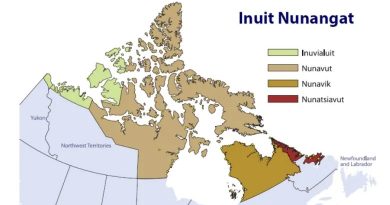Systemic issues spotlighted in new hearings of Canada’s inquiry into violence against Indigenous women
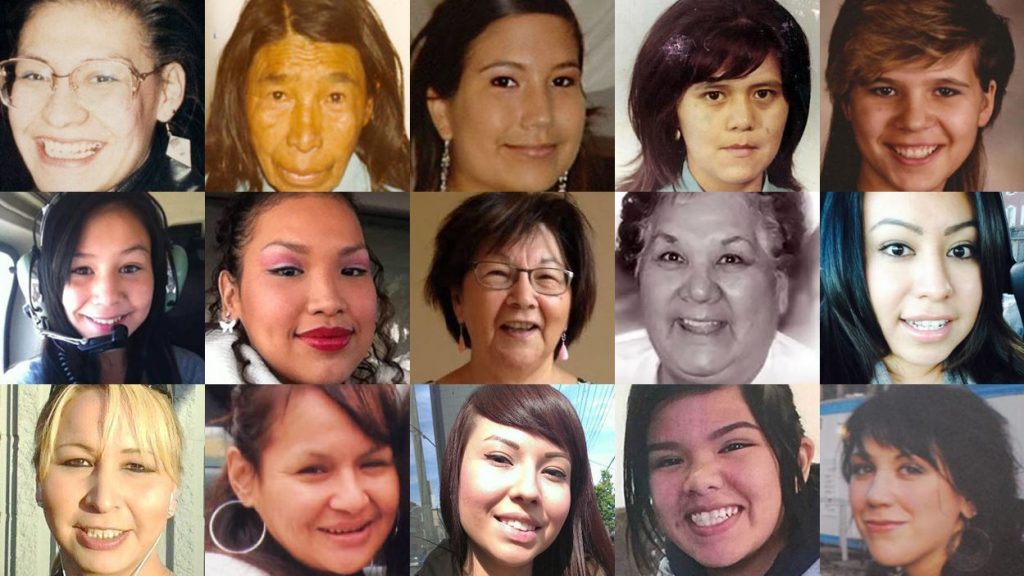
The national inquiry into missing and murdered Indigenous women and girls has begun in Iqaluit, in Northern Canada, where commissioners are hearing from knowledge keepers and experts on the topic of colonial violence.
Socio-economic, health, and wellness impacts are expected to take centre stage at the four-day hearings, being held at the city’s Frobisher Inn. It’s the first of four final hearings scheduled for the inquiry, which has a deadline of Dec. 31 for research and statement-gathering.
Commissioner Qajaq Robinson, who is from the northern territory of Nunavut and spent much of her life in Iqaluit (Nunavut capital), says it’s important for the inquiry to return to the territory. Commissioners previously heard from survivors and families in Rankin Inlet, southern Nunavut, in February.
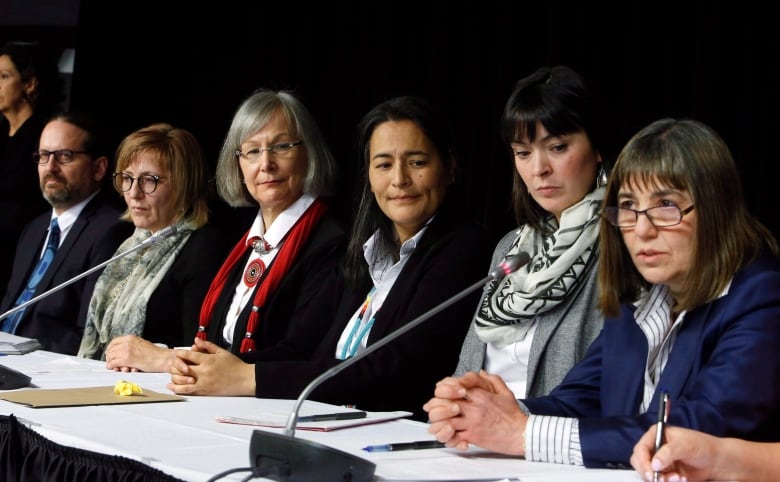
“One thing we’ve heard across the country, but in particular from Nunavut, is the impact of rapid change on communities, on families, on social structure,” she said. “How governments came in, and how the introduction of alcohol and different factors really had an impact on people and families.
“We’ve also heard a tremendous amount about the lack of services. How women, girls, and children are in violent situations and there’s no place to flee, there’s really no help that anyone can get.”
Survivors and families won’t be testifying at this week’s hearings. Instead, the commissioners will speak with stakeholders and experts, including representatives from Inuit organizations and cultural revitalization groups. The inquiry is expected to take lessons learned from those previous hearings and use them to inform the discussion.
“Hearing more about the causes, the systemic issues at play, but also solutions,” Robinson said. “It’s really about getting a better understanding of what the causes are.”
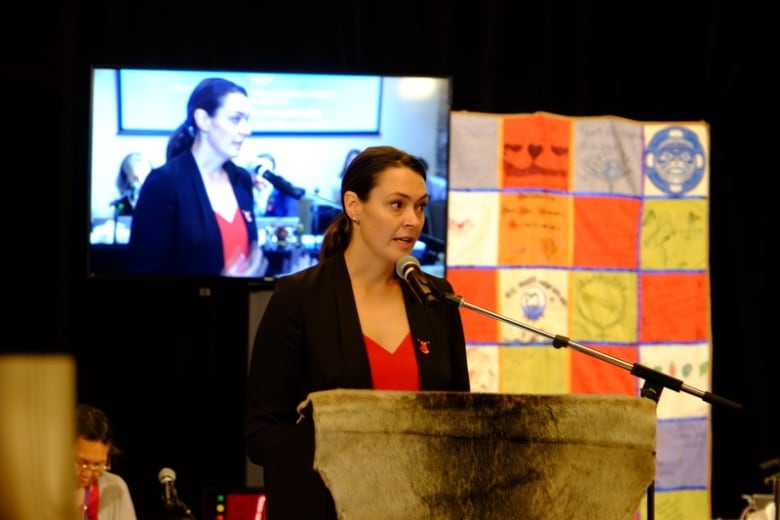
‘Our communities need to change the mentality’
Iqaluit-Manirajak MLA Adam Arreak Lightstone said he’s happy to see the inquiry return to the territory, though he wishes there was time for testimony from survivors and families.
Arreak Lightstone’s sister and two daughters were killed in 2011 in a widely-suspected case of murder-suicide, and he has championed changes to the territory’s domestic violence policy in the territory’s legislature.
Arreak Lightstone, who will be at the hearings, says that domestic violence is still a taboo issue across the territory, and he’s hoping the hearings will help bring the topic back into focus.
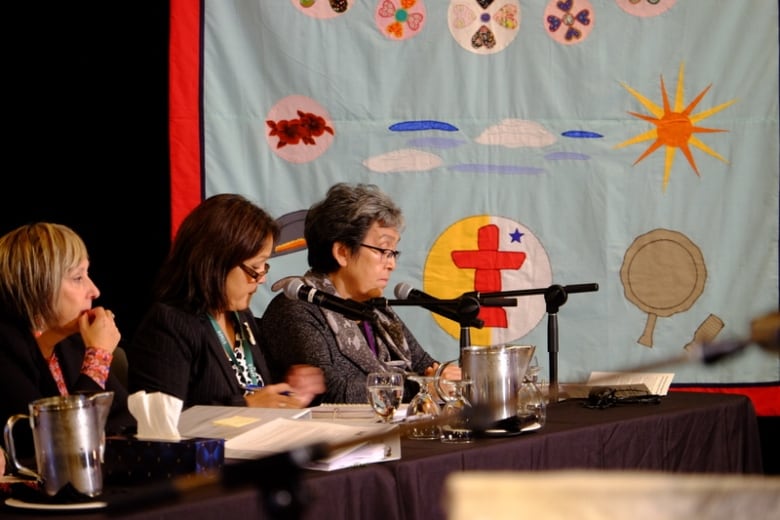
“The more the topic is brought up, the better,” he said. “Because the more the topic is brought up, the more likely it would be that the public would speak out against those abusers.”
“Every time I come across a woman in the grocery store with black eyes, or obvious injuries, the first thing that comes to mind is it’s most likely domestic violence related, and it just tears me up inside,” he said. “I just can’t imagine what these women are going through. Our communities need to change the mentality on violence against women.”
However, Arreak Lightstone said that even without direct testimony from survivors, the commission’s return to Nunavut is important to give them a first-hand understanding of the systemic issues at play within the territory, a sentiment echoed by Robinson.
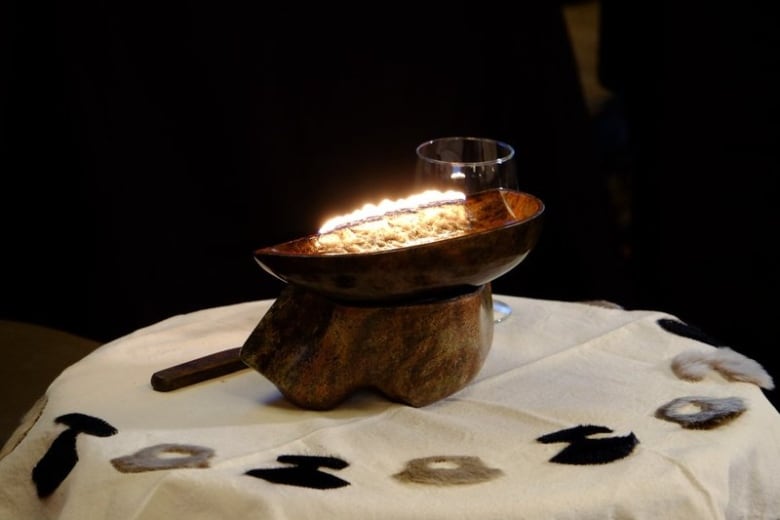
“You need to go there, you need to see it, you need to understand it the best that you can,” she said. “They’re going to go to the local stores, they’re going to see how much it’s going to cost to get some food. They’re going to see the issues with infrastructure, and housing.”
Though the hearing does have several scheduled Inuit speakers, it is a national hearing. Some non-Nunavut witnesses scheduled to speak include Dr. Janet Smylie, a Cree-Métis leader in the field of Indigenous health, and Jeffrey McNeil-Seymour of the Secwepemc Nation, an assistant professor at Ryerson University who specializes in enhancing social work education through land-based teachings.
The hearings are open to the public and are scheduled through Thursday evening. After the Iqaluit hearings, commissioners will next head to Quebec City (east) Sept. 17, where they will convene four days of hearings centred on the criminal justice system.
Related stories from around the North:
Canada: Non-Inuit staff at shelters lack cultural sensitivity, say homeless women in Arctic Canadian town, CBC News
Norway: Injustices against Sámi, Kven peoples to be examined by commission in Norway, The Independent Barents Observer
Sweden: Report sheds light on Swedish minority’s historic mistreatment, Radio Sweden
United States: Survey finds violence against women widespread in Western Alaska region, Alaska Dispatch News



